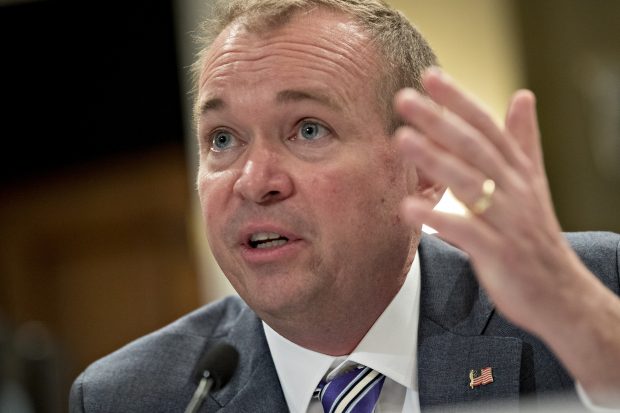
As Acting CFPB Director Mick Mulvaney prepares for two days of grilling on Capitol Hill, credit unions are jumping to his defense, while also blasting the actions of his predecessor.
And credit union trade groups say those actions were made possible by a federal law that gives the singe-director structure of the agency unchecked power.
At the same time, consumer groups are accusing Mulvaney of being a lapdog and a tool of the financial industry, saying he has taken no new enforcement actions since being appointed.
Meanwhile, Reuters reported Monday that the agency may seek a record fine against Wells Fargo in connection with allegations that the bank has violated consumer protection laws.
Mulvaney was appointed acting director by President Trump, following the resignation last year of Director Richard Cordray. Cordray was nominated by President Obama and was far more aggressive than Mulvaney has proven to be.
“Mick Mulvaney is using his temporary status to push a radical agenda to destroy the consumer bureau precisely because it has the independence to stand up to powerful financial interests, and to do its job protecting the public, said José Alcoff, payday campaign manager at Americans for Financial Reform. “Mulvaney wants the CFPB to be a lapdog, not a watchdog.”
All of this comes as Mulvaney prepares to testify before the House Financial Services Committee on Wednesday and before the Senate Banking Committee Thursday.
He is expected to be grilled on his tenure by congressional Democrats, who have criticized him throughout his months at the agency.
In a letter to members of Congress this week, CUNA President/CEO Jim Nussle laid out the financial community's objections to the agency ten years after it was established by the Dodd-Frank Act.
“One decade later, it is clear that the CFPB has let credit unions and consumers down,” Nussle wrote. “Rule after rule has impeded credit union service to their members.”
He called on the bureau to transfer examination and supervision for compliance with consumer protection rules for all credit unions to the NCUA.
He wrote that while Mulvaney has made improvements at the agency, the structure of the bureau must be changed.
The bureau has a single director, who may only be removed by the president for cause.
In a separate letter to members of Congress, financial trade groups, including CUNA and NAFCU endorsed legislation that would restructure the bureau to be run by a commission.
In a related development, groups representing payday lenders on Monday filed suit in federal court in Texas challenging the CFPB's payday lending rule.
Short-term loans are essential to many Americans, the Community Financial Services Association of America and Consumer Service Alliance of Texas contend in the suit.
“Yet rather than strengthen and protect access to this critical form of consumer credit, the Consumer Financial Protection Bureau decided to virtually eliminate it, and an entire industry, through its draconian final rule on payday, vehicle title, and certain high-cost installment loans,” the groups contend.
And they argue, that “the final rule rests on unfounded presumptions of harm and misperceptions about consumer behavior and was motivated by a deeply paternalistic view that consumers.”
© 2025 ALM Global, LLC, All Rights Reserved. Request academic re-use from www.copyright.com. All other uses, submit a request to [email protected]. For more information visit Asset & Logo Licensing.







